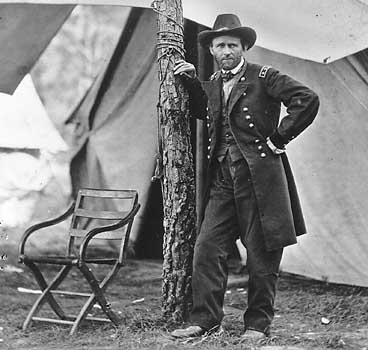In the pantheon of famous American cigar aficionados, Ulysses S. Grant stands above the rest. His vast accomplishments are only equaled by his voracious appetite for cigars. Anyone who with even a cursory knowledge of American history knows Grant’s role in fighting the civil war. But Grant’s incredible story starts long before the Civil War and continued long after. Entwined with that story was his burning passion for premium cigars.
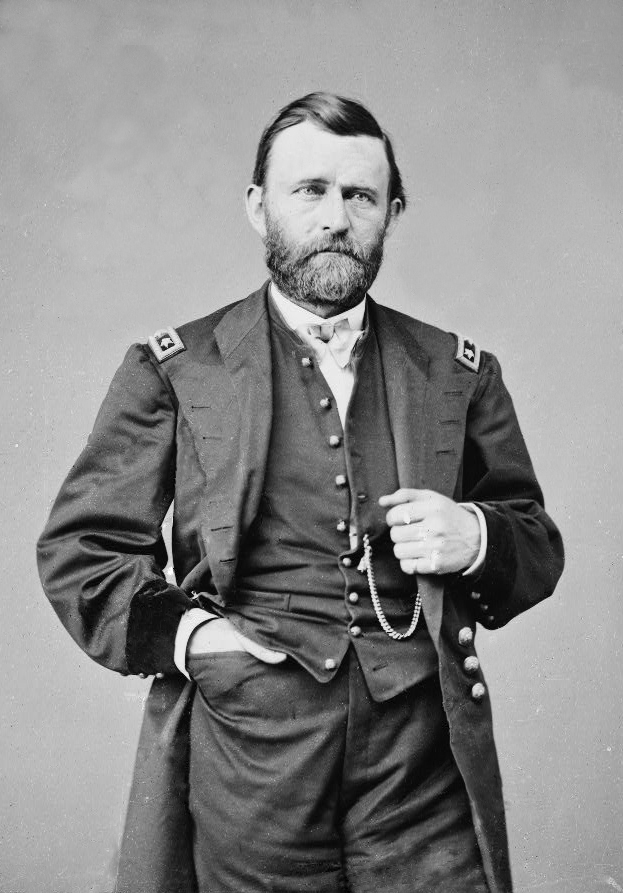
Born in 1822, Hiram Ulysses S. Grant was born in Point Pleasant, Ohio, to his parents Jesse and Hannah. From a young age, Grant set himself apart from others. Showing an incredible ability for horsemanship from the early age of two, Grant was soon proving so adept he assisted his father’s business. Famously, when he was eleven, a traveling circus came to town with a trick pony that was trained to buck and throw off any rider. Offering a five-dollar (3700 dollars today) prize to whoever could tame it, men from all over the town lined up to try.
After so many had failed, Grant stepped forward and simply said, “I believe I can ride that pony.” With no reigns to clasp, and its mane cut short, Grant wrapped his arms around the pony’s neck. After a long and frenzied attempt by the pony to buck him off, Grant emerged victorious when the animal finally settled and let him ride.
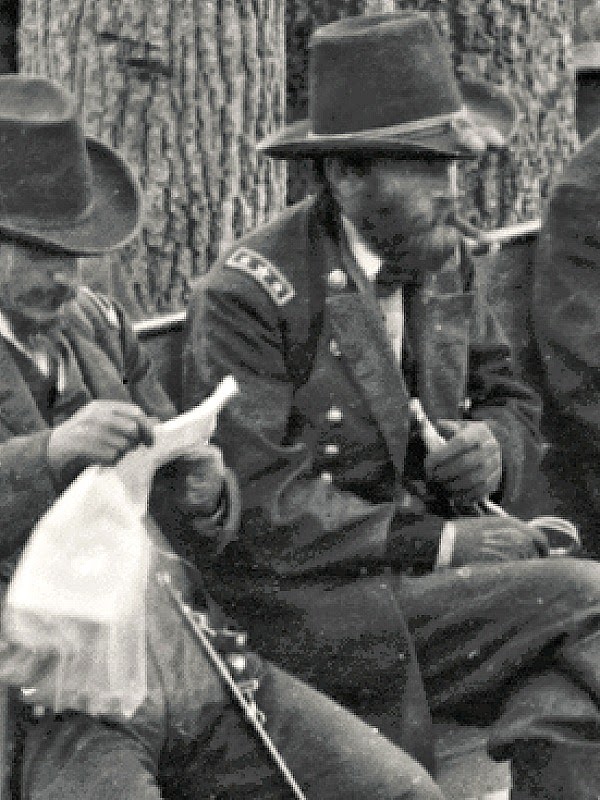
That indomitable spirit would serve Grant for the remainder of his life. Seeing in his son the beginning embers of greatness, Jesse Grant wrote his local congressman asking that he nominate Ulysses to attend the prestigious Westpoint Military Academy. The congressman evidently saw the same in young Ulysses and followed through with his nomination.
After four years at West Point, Grant began the mandatory term of duty in the United States Army required of all West Point graduates. During that, he quickly gained a commendable service record during the Mexican-American War. Rising from quartermaster to first lieutenant, for his continued acts of bravery during battle.
It wasn’t till after his first war that Grant became an avid smoker, and it’s no wonder why. Grant soon found himself under constant stress from seemingly endlessly poor luck. Finding the leisurely pace of peacetime difficult and his superiors disagreeable, Grant left the military and settled on an eighty-acre farm with his wife Julia.
Civilian life only worsened his luck. The farm languished and Grant’s attempt to find employment as an engineer and a clerk didn’t go any better. He even attempted to start his own real estate business but to no avail. Grant was so forlorn during this period, it’s said he smoked up to twelve cigars a day to relieve his constant stress.
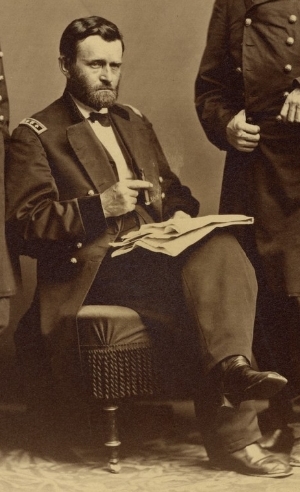
Things would change for Grant and the whole nation on April 12, 1861, when Confederate troops attacked Fort Sumter. Lincoln quickly called for seventy-five thousand volunteers for the Union Army. Grant was quick to answer the call, forming a local volunteer militia to assist the war effort.
Denied a recommission to his old rank by the man he would ironically replace as commander of the entire Union Army, General George B. McClellan, Grant worked his way back up through the ranks. Starting as a military aide to Ilinois Governor Richard Yates, Grant’s proven ability as a soldier soon had him promoted to Colonel.
The turning point for Grant’s life, and the entire Civil War, came with the battle of Fort Donelson. A strategic position that was key to advancing further South. Grant’s plan was dismissed by his superiors, who insisted he conduct the attack in tandem with a navy operation. Grant knew Donelson could turn the tide of war, and immediately set out to capture the fort.
After several probing attacks, Grant has a strategic retreat to meet with reinforcements. The remaining division was soon attacked by the Confederates, but Grant personally rode through miles of frozen wilderness with reinforcements to defend their position. Blocking the supply lines for the Confederate troops, the enemy retreated back into the fort only to face bombardment from the Union Navy.
The commanding Confederate Generals fled, leaving Fort Commander Simon Buckner to face Grant. When meeting to discuss an end to hostilities, Buckner asked what terms of surrender would be acceptable. Grant replied there would be “no terms but an unconditional and immediate surrender.”
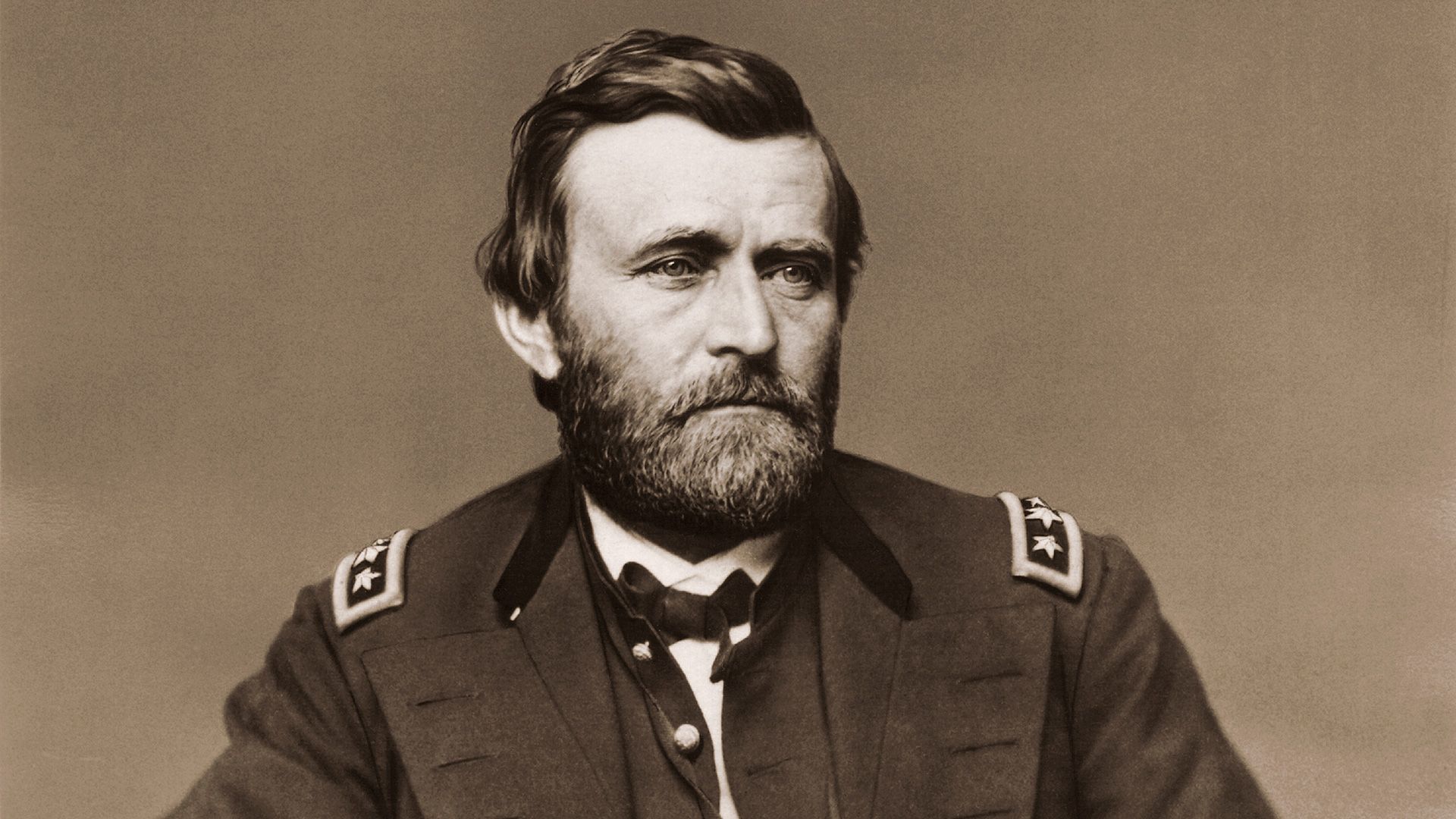
Buckner complied, and Grant’s actions were the first major victory for the North in the early days of the Civil War. Grant was soon promoted by Lincoln to Major General before later being promoted to head of the Union Army. Earning the nickname “Unconditional Surrender” Grant, newspapers described Grant smoking a cigar when victoriously capturing Fort Donelson.
Becoming an instant national hero, everyday people from across that nation showed their thanks by sending Grant cigars. Legend says he received up to ten thousand before the end of the war. Now that’s a reward! Considering his achievements and love for cigars, it’s strange Grant is as closely associated with them as say, Winston Churchill. Maybe we should start calling extra-large cigars Grants?
Do you have a famous historical cigar smoker? Let us know in the comments.



